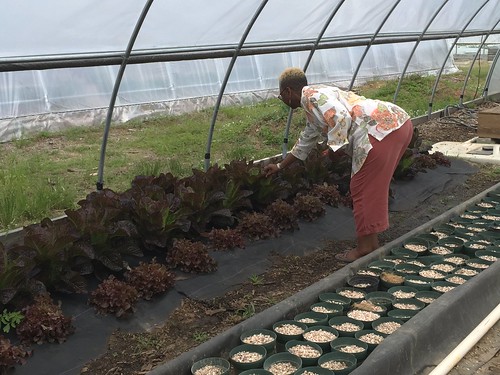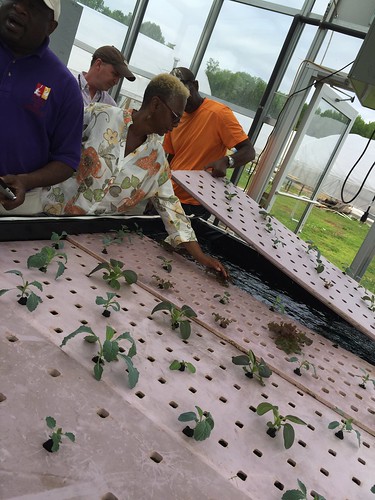
This year I have had the pleasure of visiting a number of urban agriculture operations. From California to Cleveland, the ability of individuals to realize the multidimensional benefits of agricultural production and leverage them in an urban context has been nothing short of amazing.
This past week I visited a University that is heavily involved in both the research and extension aspect of urban agriculture -- right in the backyard of the Department’s Washington, D.C. headquarters. The University of the District of Columbia’s (UDC) Muirkirk Agricultural Experimentation is located about 20 minutes north of the school’s D.C. campus. Upon arrival I found everything from activists passionate about learning how to best provide their neighbors with fresh produce, to researchers developing improved hydroponics systems; and even students working with community organizations on rice varieties suitable to be grown in urban areas.
At the Van Ness campus in D.C., it was clear that from an agricultural perspective, the University has fully embraced its uniqueness as an entirely urban land grant University. For example, while many discussions of urban agriculture have taken place in the context of revitalizing and reclaiming urban areas on the decline, UDC describes its orientation as more “global.” The activities here have been framed by competition for already crowded space as opposed to a solution to urban decay. This has translated into an 18,000 square ft. research garden, designed to optimize rainwater harvesting, and located on a rooftop within earshot of busy Connecticut Avenue.
Additionally, the University hosts a farmers market, is completing a commercial kitchen, and is establishing a number of food hubs across the District to help address food insecurity. One pattern we are beginning to see in many urban areas is the increasing desire for locally grown products, intersecting with the perennial needs of access to healthy food and community development. UDC’s new kitchen will be used both for education as well as retail purposes and is located directly above the site of the University’s Farmers Market. Much like other places that I have visited, local producers are not only being connected to a marketplace to sell their products but also the tools necessary to generate value-added products.
UDC and similar efforts only further elucidate that urban agriculture is about production and creating economic opportunities for communities that need them. This is why USDA’s National Institute of Food and Agriculture has provided over $3 million in support to the University over the past two years. The work I witnessed during my time at UDC makes me excited for the future of how research and extension can help support urban agriculture as a safe, efficient, and healthy component of local and regional food systems.




